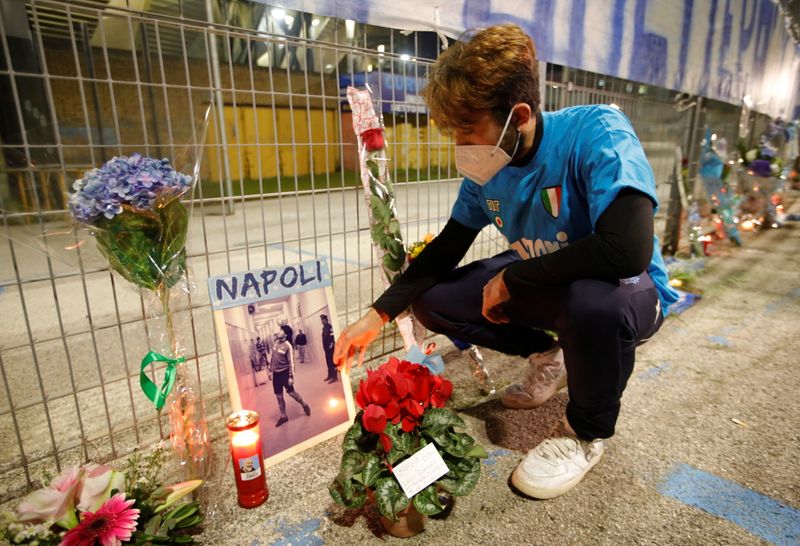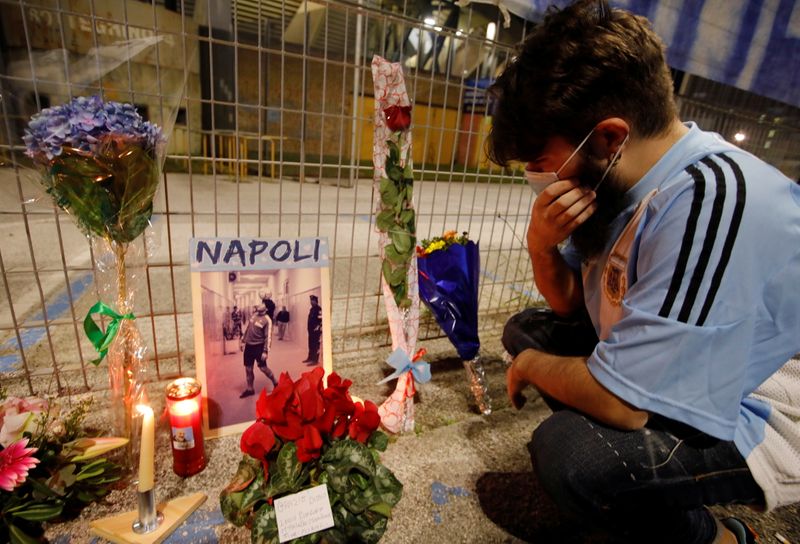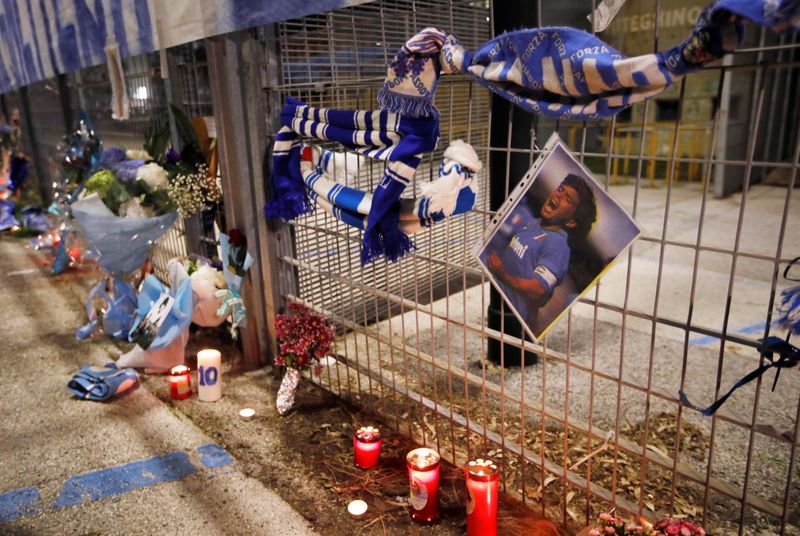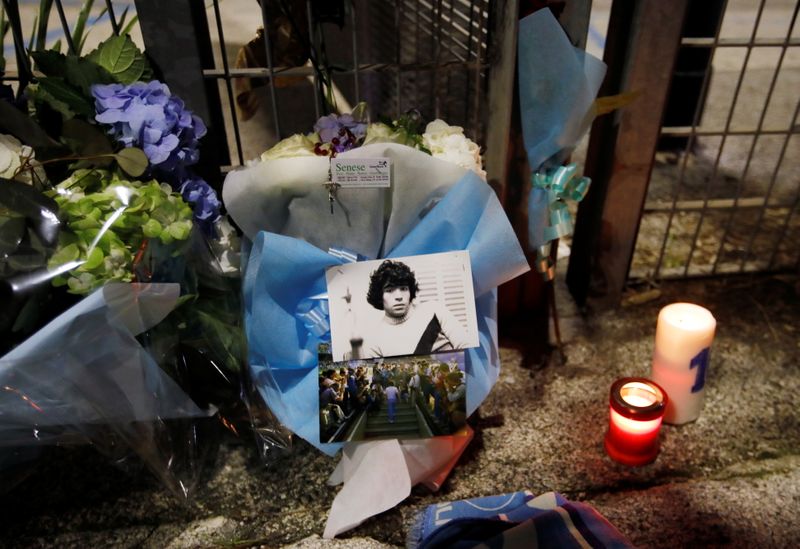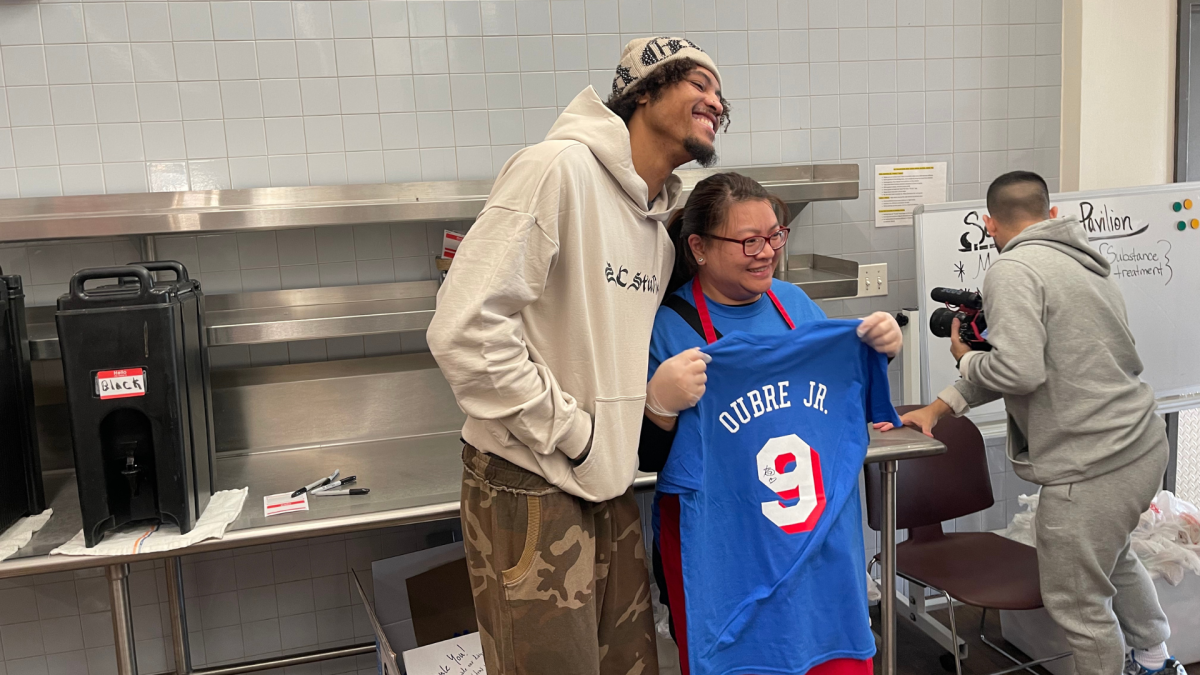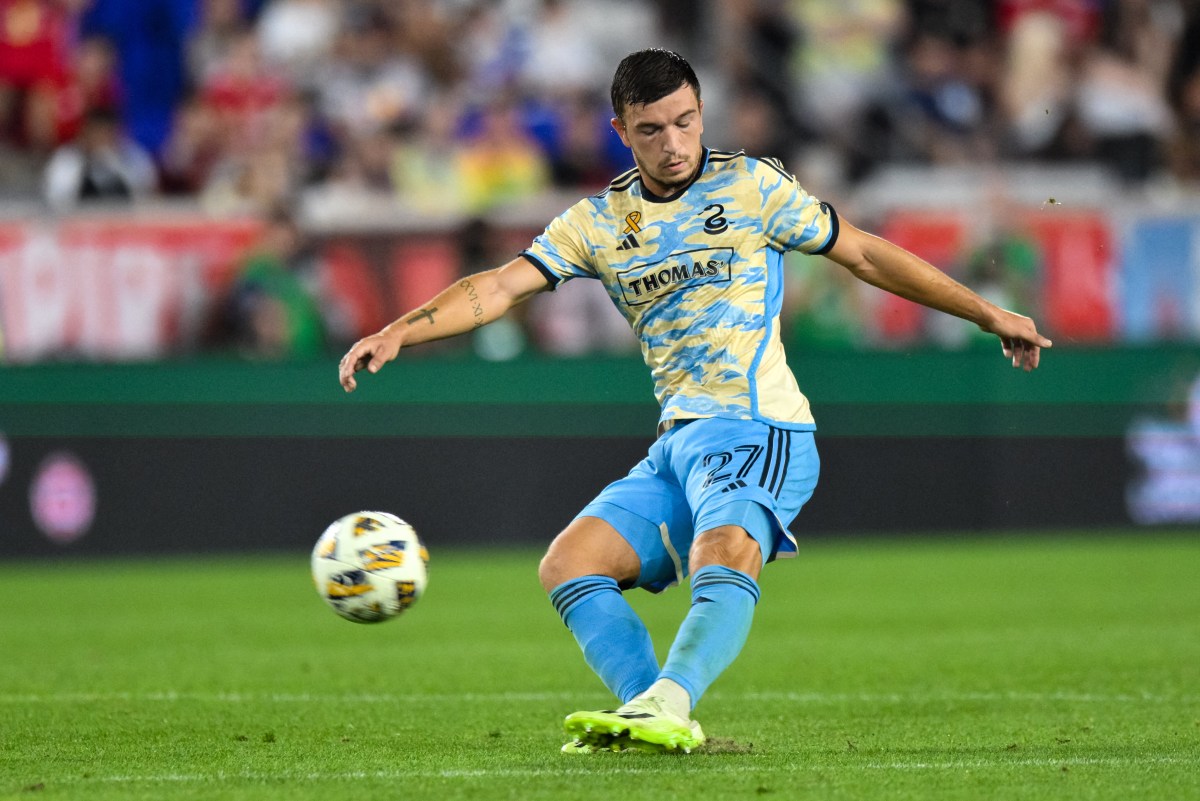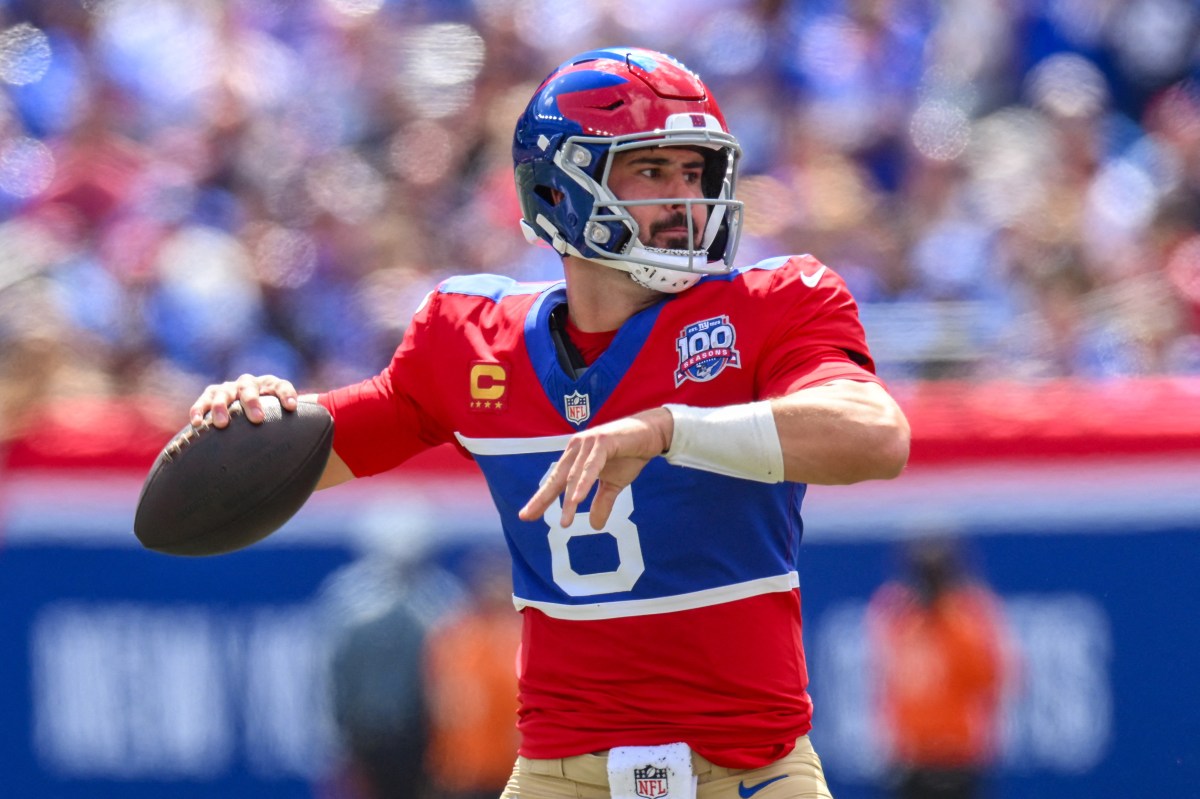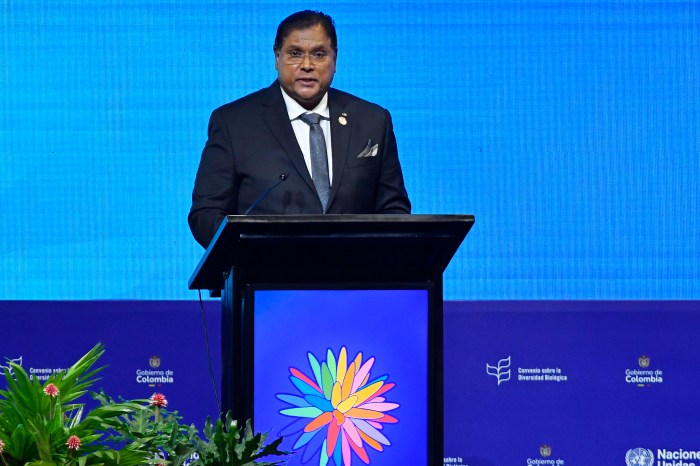NAPLES, Italy (Reuters) – In the southern Italian city of Naples, soccer is a religion and Diego Armando Maradona was its God.
News of his death on Wednesday ricocheted around the city’s narrow alleyways, drawing crowds into the streets to mourn the passing of the Argentine star who decades earlier had turned their beloved Napoli soccer team into national champions.
Naples is meant to be under lockdown to prevent the spread of the coronavirus, but in keeping with their unruly reputation, fans ignored the restrictions to show their love for a man whose image still adorns many windows and courtyards.
“There is only one Maradona,” a group of fans chanted, letting off red flares beneath a giant mural showing the stocky star in his footballing heyday.
“He was a symbol, our hero. He gave the city a lift through soccer. It might seem stupid but that’s the way it was here,” said a young man, who held up his ID card to show that his parents had named him Diego Armando in honour of their idol.
“I am sorry that he wasn’t able to take care of himself as a man, but we loved him in our way.”
Maradona came to Naples, a city drenched in sun and superstition, in 1984 when he was 23.
At the time, the unfashionable Napoli team was struggling to stay in the top flight. The Argentine player transformed its fortunes, leading it to its first Serie A League title in 1987 and to a second ‘scudetto’ in 1990.
“He was a god of soccer,” said Salvatore Esposito, star of television series “Gomorrah”. “Us lads who grew up in the Naples suburbs dreamed of being soccer players because of Diego. He was one of the family,” he told Sky Italia television.
City mayor Luigi de Magistris called for the Napoli stadium to be renamed after Maradona. “Diego, Neapolitan and Argentinian, you gave us joy and happiness. Naples loves you!” he said in a statement.
Maradona was mobbed by tens of thousands of fans when he first arrived in Naples, but he left under a cloud in 1991, suspended from world soccer for 15 months for doping and sent to trial over alleged links with a vice ring.
A 2019 documentary film chronicled his wild Naples years, when he became addicted to cocaine and partying. He had a son whom he only recognised after an Italian court ordered him to pay maintenance and he was pursued by the local tax authorities over unpaid arrears for years after his departure.
But any errors and misdemeanours meant little to his army of followers in a city which has often been treated with disdain by the rest of the country.
“We are devastated,” said Napoli club spokesman Nicola Lombardo. “We feel like a boxer who has been knocked out. We are in shock. We have lost a member of our family. Words fail me.”
(Reporting by Ciro De Luca in Naples; Additional reporting by Angelo Amante and Crispian Balmer; Writing by Crispian Balmer; Editing by Rosalba O’Brien)

